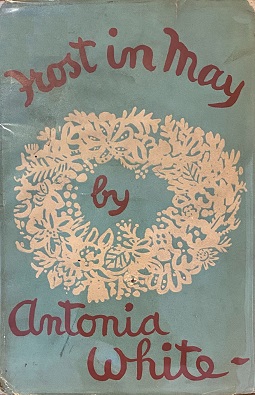Books like Frost in May
Frost in May
4.5 starsThis is an autobiographical novel about life in a Catholic Girls school, quite closely based on White’s own life. Like the protagonist of the novel, Nanda, White was a Catholic convert at the age of nine and was sent to a school very like the one in the book. Nanda wants to be a good Catholic as is shown in her prayer on her first night at the convent:“Nanda felt a wave of piety overwhelm her as she knelt very upright in her bench, her lisle-gloved hands clasped on the ledge in front of her. "Oh dear Lord," she said fervently in her mind, "thank you for letting me come here. I will try to like it if You will help me. Help me to be good and make me a proper Catholic like the others."”The novel covers Nanda’s life from the age of nine to fourteen. It is the first of four autobiographical novels. White had mental health problems throughout her life and she referred to them as “The Beast”. When she was twenty-two her mental health was so bad that she was admitted to a public asylum, Bethlem (whose nickname was bedlam). She didn’t really begin to write until her mid 30s. The novel vividly describes daily life in a convent school. There are no beatings and direct physical abuse, the cruelties are psychological. It is about expectation and not disappointing The Lord (or Our Lady). The little things are cumulative, like putting salt on the stewed fruit as a form of mortification. The girls were expected to sleep on their backs with their arms folded across their chests:“That way ... if the dear Lord were to call you to Himself during the night, you would be ready to meet Him as a Catholic should.”The whole is about the crushing of innocence and the smothering of the natural instincts of children. Nanda is a convert to Catholicism and so is automatically viewed with some suspicion. The goal of the nuns is generally to break the will of the child to ensure they become the right sort of Catholic. Mother Radcliffe, the Mistress of Discipline is a particularly unpleasant character, the more so as she appears kind and pleasant:“'You are very fond of your own way, aren't you, Nanda?''Yes, I suppose so, Mother.''And do you know that no character is any good in this world unless that will has been broken completely? Broken and re-set in God's own way. I don't think your will has been quite broken, my dear child, do you?' “The ending is very powerful and shocking, describing Nanda’s expulsion from the school. Her distress and her father’s coldness are very well written and it is clear that White is writing form her personal experience. This is a well written and competent description of life in a Catholic Convent school in the early twentieth century and a great advert for atheism!
